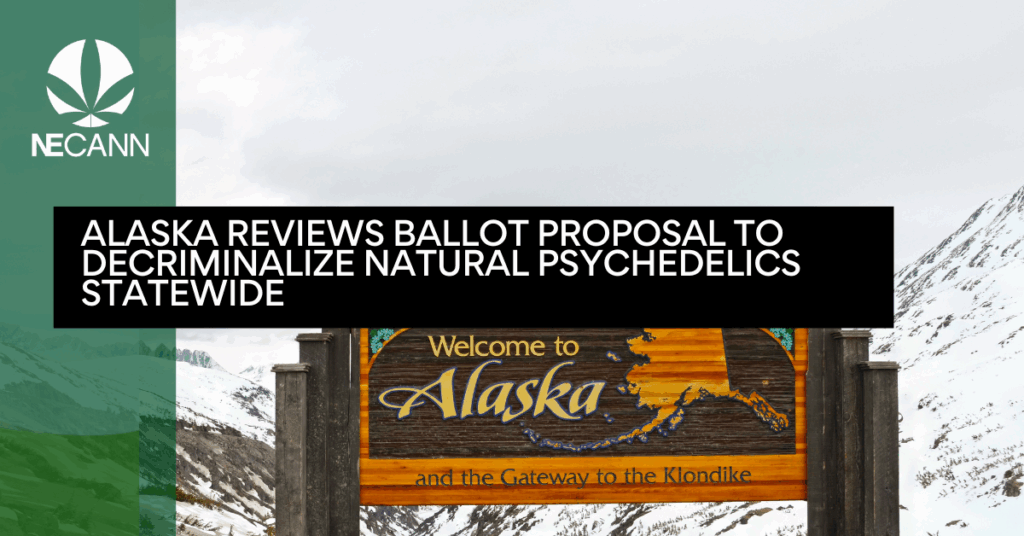Alaska may soon become the latest state to decriminalize natural psychedelics like psilocybin, DMT, and mescaline under a draft ballot measure now under review by the Alaska Department of Law. The proposal, known as the Alaska Natural Medicine Act, was submitted by advocacy group Natural Medicine Alaska on June 18 and is modeled after similar voter-approved measures in Oregon and Colorado.
The measure seeks to decriminalize the personal use, cultivation, sharing, and ceremonial application of certain psychedelic compounds derived from natural sources. Specifically, the act would apply to psilocybin and psilocin (the active ingredients in psychedelic mushrooms), DMT, and mescaline (excluding peyote due to its protected status among Native American groups).
According to the Alaska Beacon, the Department of Law is expected to complete its review by August 17. If the proposal passes this phase, supporters will need to gather at least 34,099 valid voter signatures, meeting minimum quotas across multiple legislative districts, to qualify for the state ballot.
The timing of the signature-gathering process will determine which election cycle the proposal lands on. If completed before the state Legislature convenes in January 2026, it would appear on that year’s ballot. Otherwise, it will be pushed to 2028.
The Alaska Natural Medicine Act offers a three-tiered framework for reform:
- Decriminalization of personal possession and use for adults 21 and older.
- A Regulated Access Model, allowing licensed healing centers to offer guided psychedelic experiences.
- A Traditional Use Model, which preserves ceremonial and spiritual practices among Indigenous and cultural communities who have long histories with natural medicines.
Ismail Ali, interim co-executive director of the Multidisciplinary Association for Psychedelic Studies (MAPS), praised the measure, noting that it’s the first statewide psychedelics initiative he’s seen with clear Native leadership and respect for local traditions.
“This is an important step toward healing and cultural sovereignty,” Ali told the Beacon. “It demonstrates how reform can include Indigenous voices and values from the very beginning.”
The proposal arrives amid growing national interest in psychedelic therapies for mental health conditions like PTSD, depression, and anxiety. Still, the Alaska initiative focuses more on community-based and ceremonial access rather than medicalized treatment.
If successful, Alaska would join Oregon and Colorado in pioneering statewide psychedelic reform. Oregon voters approved their decriminalization and therapy model in 2020, followed by Colorado’s similar measure in 2022. Alaska’s version, however, stands out for its explicit protections of spiritual and Indigenous practices, potentially offering a more inclusive blueprint for future reforms.
As the Department of Law reviews the ballot language, advocates are preparing for a potential statewide campaign and signature drive in the coming months. The measure has already drawn attention from national advocacy groups, health professionals, and cultural leaders interested in expanding access to safe, intentional psychedelic use.
Whether Alaska voters will get to decide on the measure in 2026 or 2028 remains uncertain — but the conversation around plant-based healing and personal freedom is clearly accelerating in the Last Frontier.



